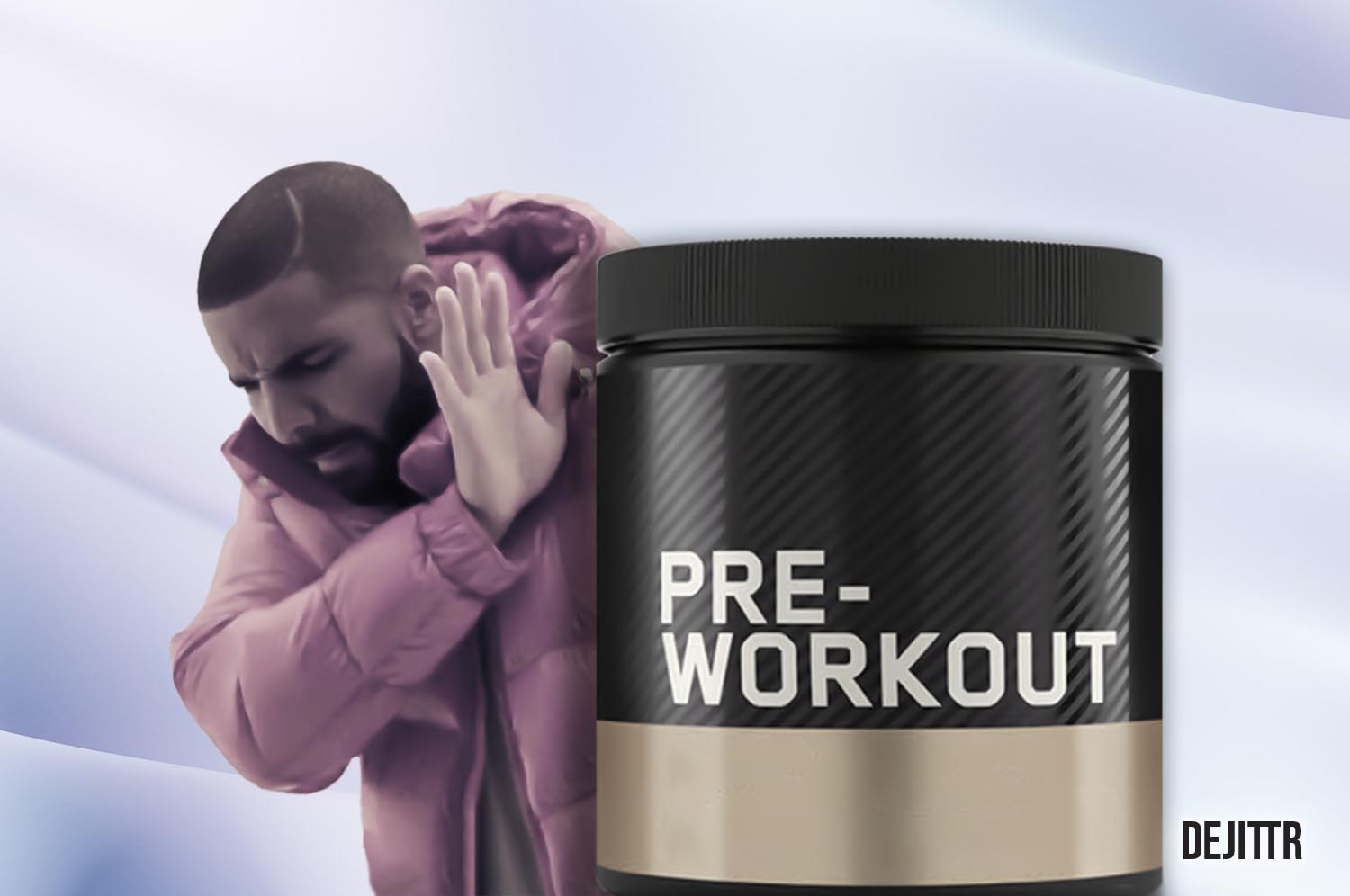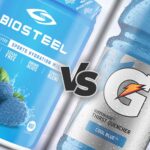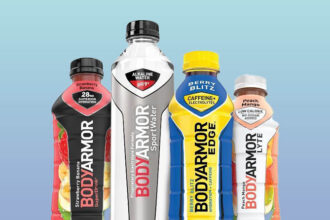In the high-octane world of college sports, where every leap, sprint, and tackle counts, what fuels you matters. But tread carefully, athlete, for not all power-ups are created equal—or NCAA-approved.
Picture this: You’re about to crush your workout, but that new pre-workout tub might just sideline your dreams. Before you scoop and shake, let’s dive into the murky waters of NCAA’s no-no list. This isn’t just another list; it’s your playbook for staying in the game. Ready to dodge the pitfalls and sprint towards success? On your marks, get set… read!
The NCAA is quite stringent regarding the substances you can use as an NCAA athlete. It’s somewhat notorious for restricting even the amount of caffeine you’re allowed to have in your body, which not even the World Anti-Doping Agency does. If you’re a fan of pre-workout supplements, this might (rightfully) be a point of concern.
Here’s the NCAA-banned pre-workout list:
- Ronnie Coleman’s Yeah Buddy
- Mr. Hyde NitroX
- Crack by Dark Labs
- Demented by Elemental Nutrition
- Nitraflex
- Hooligan
- C4
- Jack3D
- Dark Energy
- Krak’n by God Status Labz
- Leatherfaze
In the following sections, I’ll take you through each of these pre-workout supplements and why it is best to avoid them if you don’t want to risk failing a drug test. This will allow you to intelligently fuel your workouts and competitions without breaking the rules.
1. Ronnie Coleman’s Yeah Buddy
Ronnie Coleman is known for his insane energy during his workouts, and it seems that this supplement was designed to transfer that same level of energy to you. His product contains a whopping dose of 420 mg of caffeine per serving, one of the highest doses of caffeine in any pre-workout that is currently legal.
This super-high concentration of caffeine can be problematic because of the limitations imposed by the NCAA. The NCAA does not allow the urinary concentration of caffeine to exceed 15 micrograms per milliliter. This translates to consuming around 500 mg of caffeine within two or three hours before a competition.
The caffeine content in Yeah Buddy is dangerously close to that upper limit, which poses a serious risk of breaking the rules. Furthermore, different bodies will process caffeine differently, so someone could, hypothetically, get popped for consuming less caffeine. And, not to mention, some people like to push the envelope and consume more than one dose of pre-workout, which, in this case, would mean breaking the rules.
You probably don’t want to risk anything, so it’s best to find a less caffeine-rich pre-workout. Or even better, to stay clear of it completely before competitions.
2. Mr. Hyde NitroX
This is another heavyweight pre-workout, with a staggering caffeine matrix of 420 mg. This caffeine matrix includes:
- 300 mg of caffeine anhydrous.
- 70 mg of di-caffeine malate.
- 50 mg of caffeine citric acid blend.
While this blend is bound to make even the heaviest workout feel like a piece of cake, it might not be the best option for an NCAA athlete due to the high caffeine content. The other active ingredients in Mr. Hyde are currently not banned by the NCAA, but it wouldn’t be strange if they came under scrutiny in the future.
3. Crack by Dark Labs
If a product is called Crack, and the manufacturer is called Dark Labs, you can guess that you’re in for a hell of a treat, and Crack truly doesn’t fail to deliver. While the caffeine content in one dose is not absurd, at 200 milligrams, the problem is in the substance this pre-workout boasts the most: DMAA.
Crack contains 60 mg of DMAA, dimethylamylamine, or 120 mg for a double scoop. It’s the biggest selling point, but the NCAA explicitly bans this substance. DMAA is an amphetamine derivative, and even though it’s often marketed as a natural substance, the FDA does not confirm this claim.
Furthermore, this substance may cause health issues such as:
- High blood pressure
- Narrowing of blood vessels and arteries
- Arrhythmia
- Shortness of breath
- Seizures
- Heart attack
It is no wonder that the NCAA bans it; even if it wasn’t banned, it would be best to avoid it either way. There are much safer ways to improve your performance while protecting your health and longevity.
4. Demented by Elemental Nutrition
Demented is another pre-workout in the 400 mg range, which could easily make you slip up and ingest too much caffeine. While it may not be as extreme as Crack, since it contains safe and natural ingredients, its high caffeine content may be too much if you want to stay within the guidelines.
Demented also includes Vaso6, a novel compound meant to increase your blood flow and give you a bigger pump. Currently, there is not much literature to back it up, so it’s not clear whether it is safe, but if you’re a bit suspicious of new supplements, you might want to stay clear of it.
5. Nitraflex by GAT
Nitraflex may seem mild with its caffeine content of 325 mg, but even that is more than enough to turn you into an exercise machine in the gym. However, while the caffeine content is not too problematic here, there is another substance that may be.
The substance in question is boron citrate. Boron citrate is advertised as a substance that raises free testosterone levels. There seems to be some truth to this, according to Healthline. Doses between 6 and 10 milligrams seem to increase testosterone levels and push down estradiol levels.
However, there haven’t been many studies on this product, and there has been another one that didn’t confirm that boron citrate affects testosterone levels. It may be promising, but more research must be done.
The NCAA does not currently regulate this substance, but if you use it and manage to significantly raise your testosterone levels, you might come under suspicion and get suspended. What’s more, the boron citrate dose in Nitraflex is 200 milligrams, which far exceeds the doses used in the studies, making its safety questionable.
6. Hooligan
Hooligan is probably the biggest beast of a pre-workout you can find. Its upper dose of caffeine is 600 milligrams, which is more than enough to cause problems with the NCAA. What’s more, this is probably not a safe dose for most people, and even if you choose to use Hooligan, it’s best not to use the full dose.
This gigantic dose of caffeine is split into:
- 450 mg caffeine anhydrous
- 150 mg dicaffeine malate
Apart from the colossal caffeine dose, this pre-workout contains decent amounts of some substances useful for both sports performance and mental performance, such as:
- B vitamins
- Lion’s mane
- Theobromine
- ElevATP
- Alpha-GPC
Therefore, this pre-workout can be beneficial in smaller doses, but it’s probably not the best idea for an NCAA athlete.
7. C4
C4 is generally banned for use before competitions, not just by the NCAA, but in general. However, as an absolutely legendary pre-workout, it deserves a few words.
C4 was initially banned because it contained synephrine, a substance banned by the NCAA and many other sports organizations. Synephrine is seen as a potentially androgenic substance, which is why it was banned, and with it, the original C4.
C4 comes with a new formula now, without synephrine, but it still contains a pretty hefty dose of caffeine, which might make it not the best pre-workout choice for an NCAA athlete. And if you somehow stumble upon an old tub of C4, don’t buy it, as you’ll surely get yourself suspended.
8. Jack3D
Jack3D is probably the most notorious pre-workout supplement, as it is linked not just to health problems, but, potentially, to death. It came under scrutiny in 2011, when a US soldier died during a training run after taking Jack3D.
The events led to it being banned as a potentially harmful pre-workout. The harmful substance in it is DMAA, which had already been banned in Canada and many other countries while remaining legal in the US. Moreover, the label on Jack3D simply stated that it contained a proprietary blend, so the consumers couldn’t know how much DMAA they were consuming.
The pre-workout has been revived, but with a new formula, without DMAA. It was replaced by DMHA. DMHA is claimed to have similar effects but without the horrible side effects. This claim is rather dubious, and even DMHA is banned by the NCAA, which means that even the new Jack3D formula is out of bounds for you.
Even if you’re not an NCAA athlete, it is probably wisest not to touch anything that contains DMAA or DMHA.
9. Dark Energy
While some pre-workout producers replace DMAA with DMHA to make their products at least seem safe, the manufacturer of Dark Energy decided to go all-in and include both DMAA and DMHA. Just to be sure that their product would be completely unsafe.
What made Dark Energy unsafe were the following ingredients:
- 400 mg of caffeine
- 100 mg of DMAA
- 200 mg of DMHA
At these doses, Dark Energy was more akin to a party drug and not something with a place in sports supplementation.
Dark Energy is described as a research chemical, not fit for human consumption by the manufacturer, but they were still selling it. This pre-workout was banned eventually, but you can still find some leftover tubs if you dig deep enough. The best thing to do is not to embark on the search for it and use something else because Dark Energy is definitely going to get you suspended (if not worse).
10. Krak’n by God Status Labz
If you thought that the pre-workout industry could not get any shadier, you were wrong. Krak’n is quite possibly one of the shadiest pre-workouts ever produced. This is because there is no publicly available label, and the only thing known for sure is that it contained DMAA in high doses.
The company has replaced the product with a pre-workout called Zeus, which is DMAA-free but contains 400 mg of caffeine, which can make it problematic in NCAA. Besides, you probably don’t want a supplement from such a shady manufacturer.
11. Leatherfaze
If you like to identify with horror movie serial killers, then this is the right pre-workout for you. Just kidding, this is definitely not the right pre-workout for an NCAA athlete. It contains 500 milligrams of caffeine, which would be way more than allowed, and it also contains 45 mg of DMAA, just for good measure.
Leatherfaze was reviewed favorably by some lovers of high-stim pre-workouts, praising its quick kick-in, long-lasting effects, and the lack of a crash after it wears off. While it may be a good choice for a stim junkie, it is not a good choice if you’re planning on not getting suspended by the NCAA.
Is Creatine Banned by the NCAA?
Creatine is not banned by the NCAA. However, supplements can sometimes be tainted, so it’s best to only use supplements you’re certain are pure and safe.
Due to the NCAA’s stringent policies regarding supplements, you might be worried that creatine is a banned substance. Luckily for you, it is not, and you may use it freely, of course, within reason.
What the NCAA does not allow is schools handing out creatine to their athletes. This does not prevent you from personally buying and using creatine, provided that you do it responsibly and safely.
Make sure that you’re using high-quality creatine, and not something made by a sketchy underground lab. In some cases, legal supplements can be tainted with illegal ones, which will get you suspended. Not knowing is usually not a way to get out of this situation.
What Other Substances Are Banned by the NCAA?
The NCAA prohibits the use of substances that are dangerous, unhealthy, and provide an unfair advantage, including stimulants, narcotics, anabolics, alcohol, diuretics, growth hormones, cannabinoids, hormone modulators, and beta-2 agonists.
Almost all the substances banned by the NCAA are things you’re typically not allowed to use in sports anyway. Substances like anabolic steroids and growth hormones usually go without saying due to the unfair advantage they give you, while having party drugs or alcohol in your system may seriously endanger your health in a competition.
When it comes to stimulants, the ones that are explicitly banned are drugs such as the previously mentioned DMAA and DMHA. These substances were present in many pre-workout supplements, which is why you are not supposed to use any of them if you plan on being an NCAA athlete.
Caffeine is on the list of banned substances, but you’re still allowed to have some of it in your system. You’re safe if you’re a moderate coffee drinker and get your caffeine from a morning cup of joe or some soda. However, you’ll run into problems if you use high-caffeine supplements, so you must carefully check the labels before you buy a pre-workout.













